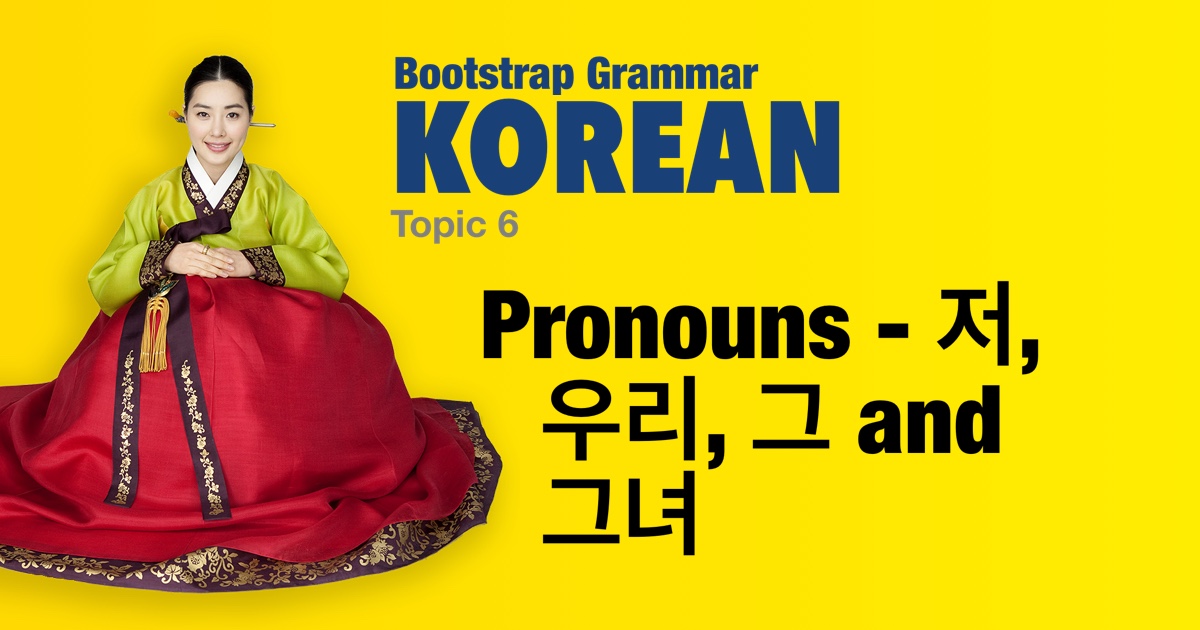Korean grammar - Pronouns - 저, 우리, 그 and 그녀 |
|||
|
|||
In general, in Korean, we try to avoid using pronouns like 'me', 'you' and 'they' when context is sufficient. But when required the pronoun can be used. However which pronoun we use often depends on the level of politeness. Common polite pronouns are: • 저 (I); This becomes 제가 when combined with the subject marker 가 • 저희 or 우리 (we) -- Note that 저희 typically excludes the listener. • 자네 or 당신 (you). These are used when addressing people of higher status but should be avoided if at all possible. -- Addressing and referring to people of higher status is complicated in Korean and will be covered in a later topic. • 그 (he / she); 그녀 (she); and 그들 (they). All these pronouns are commonly used with a topic marker (은/는) or a subject marker (이/가). |
| Examples: | |
|
저는 여기 있어요.
I am here.
|
|
|
저는 한국 사람이에요.
I am Korean. |
|
|
그녀는 대학생이에요.
She is a college student.
|
|
|
저희는 간호사예요.
We are nurses.
|
|
|
우리는 학생이에요.
We are students. |
|
|
그는 배우예요.
He is an actor. |
|
|
그녀는 돈이 없어요.
She doesn't have money. |
|
|
그들은 시간이 없어요.
They don't have time. |
|
|
우리는 기운이 없어요.
We have no energy. |
|
|
그녀는 의사예요.
She's a doctor.
|
|
|
제가 사장이에요.
I am the boss.
|
|
|
그들은 자전거 있어요?
Don't they have bikes? |
|
|
그녀는 자전거 있어요?
Does she have a bike? |
|
|
그는 변호사예요.
He is a lawyer. |
|
 |
|



 Note that in Korean one exists (
Note that in Korean one exists (